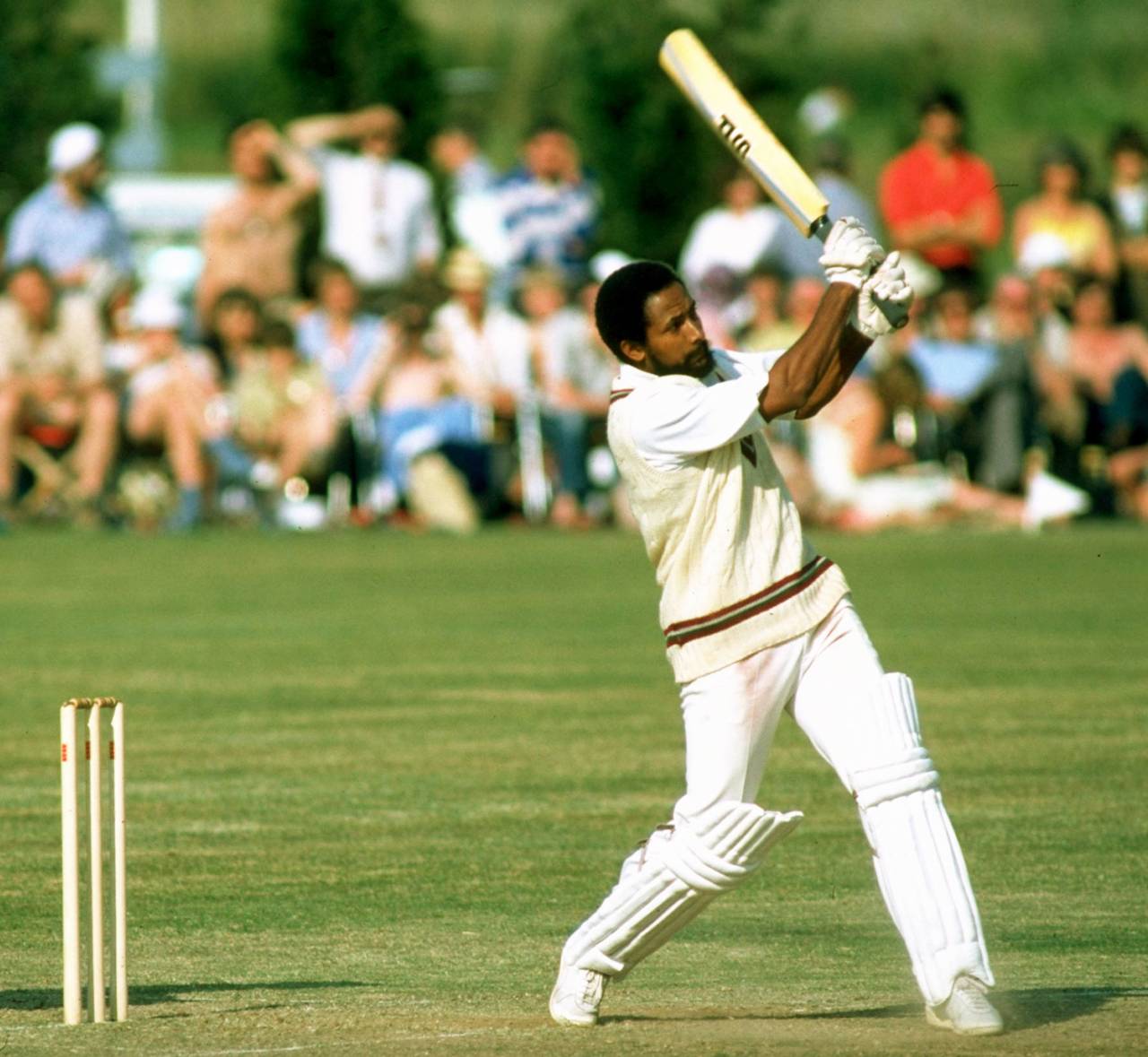It seems logical to assume that since a World Cup final features the two top-performing teams of the tournament, it will be an exciting and relatively close affair. However, history has shown that often the final is quite one-sided and that the best, often pivotal games that went on to determine the winners have been played in the group stages.
In 1975, West Indies, led by Clive Lloyd, beat a gallant New Zealand in the semi-final before defeating Australia in the final. But perhaps the turning point of the tournament was West Indies' second game, against Pakistan,
at Edgbaston.
West Indies were placed in Group B - four teams in two groups each playing in round-robin format to determine the semi-finalists - with Sri Lanka, Pakistan and Australia. Sri Lanka lost all three of their matches and Australia had
beaten Pakistan convincingly in the opening pool match, so Pakistan needed to beat West Indies to stay alive.
Going into the game, Pakistan were missing their captain, Asif Iqbal, who was in hospital following a haemorrhoid operation, and Imran Khan, who had to take exams at Oxford. The absences allowed a young cricketing prodigy named Javed Miandad to make his international debut. Pakistan's stand-in captain, Majid Khan, won the toss on a sunny day and chose to bat first on a good batting pitch.
West Indies chose to field a four-pronged pace attack but it was not yet the intimidating battery that would dominate cricket for the next few decades. Andy Roberts was both a great bowler and genuinely quick, but while his bowling colleagues, Keith Boyce, Vanburn Holder and Bernard Julien, were skilful, their pace was simply not comparable to that of Roberts - or their successors, Michael Holding, Malcolm Marshall, Colin Croft and Joel Garner.
Majid top-scored with 60 and was supported by scores of 55 by Mushtaq Mohammad and 58 by Wasim Raja. Miandad made a respectable 24 from 32 balls. After the fifth-wicket dismissal of Raja, Pakistan could only add 17 more and finished their 60 overs with 266 for 7 - a defendable score even though West Indies' line-up was full of talented strokemakers.
Nevertheless West Indies' openers would have fancied their chances against Pakistan's bowling line-up in what were still very good batting conditions. But any sense of complacency was rapidly lost when Sarfraz Nawaz took three quick wickets. Bowling with delightful control and subtle movement, he got Gordon Greenidge and Alvin Kallicharran caught behind, and trapped Roy Fredericks lbw. West Indies had slumped to 36 for 3.
Rohan Kanhai and Lloyd took the score through to 84 before Kanhai was bowled by Naseer Malik for 24. A young Viv Richards came in to bat at No. 6 but was quickly dismissed to leave West Indies at precarious 99 for 5. When Lloyd was given out, somewhat contentiously according to West Indian fans, for 55 as the seventh wicket, the match appeared to be out of West Indies' reach.
Deryck Murray was a useful keeper-batsman, and though Boyce, Holder and Roberts were all handy with the bat, a West Indian victory appeared highly unlikely with 116 needed and three wickets in hand. Things looked grimmer when Boyce was bowled with the score at 166.
Murray and Holder batted sensibly - Murray taking a more aggressive role, while Holder provided valuable support. Majid brought back his strike bowler, Sarfraz, to get the breakthrough, which he did, having Holder caught for 16.
The final pair now needed to get 64 runs from 14 overs. Majid decided to bowl out Sarfraz in the hope of picking up the final wicket, but Murray and Roberts held firm. Sarfraz finished with 4 for 44 off his 12 overs.
Pakistan were simply not able to take that final wicket and West Indies gradually whittled down the target. While Roberts was playing carefully, he was quick to jump on to anything overpitched. Murray remained aggressive and the two kept the run rate to between four and five an over.
With two overs to go, West Indies needed five runs to win. Majid gave medium-pace bowler Pervez Mir the penultimate over, which worked: he bowled an excellent maiden.
Murray was undefeated on 61, but the No. 11 batsman Roberts was on strike at the start of the last over. Sarfraz, Asif Masood and Naseer had all bowled their 12 overs. Majid now had to gamble on whether to give the final over to legspinner Mushtaq Mohammad or part-timer Raja. He chose to go with Raja, who decided bowl medium pace rather than his usual leggies.
The first ball went for a leg-bye, and in the enthusiasm to get a run-out, Pakistan conceded an overthrow. West Indies now needed three. The second ball was knocked away through midwicket and the batsmen managed two runs, drawing level. Roberts pushed the fourth ball to the leg side and they ambled through for an easy single. The final pair had scored an unlikely 64 runs from 14 overs to secure a West Indies win with just two balls to go.
In a somewhat bittersweet but now humorous moment, the Man-of-the-Match award was given to Sarfraz rather than Murray. The story goes that the adjudicator of the award, Tom Graveney, had left the game early after the loss of the ninth West Indian wicket, assuming that Pakistan would win easily. So on returning he gave the award to Sarfraz for his excellent spell.
West Indies went on to easily defeat Australia in their final group game, so if Pakistan had beaten West Indies, as they probably should have done, all three teams would have been locked on equal points and run rates would have decided who went into the semis. Which means the eventual West Indies versus Australia final may never have happened.
Stuart Wark works at the University of New England as a research fellow

